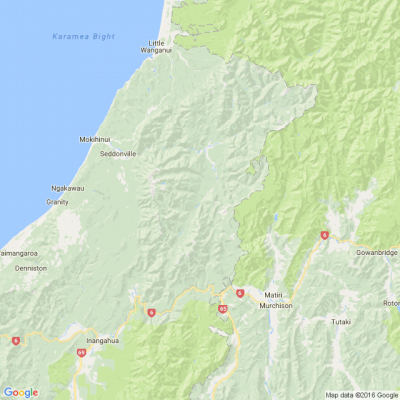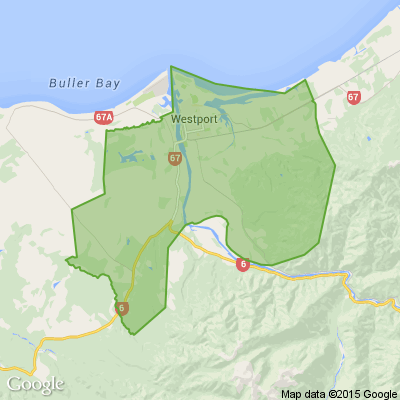$700,000 mistake left to fester at Coast council for three years
By local democracy reporter Brendon McMahon:
A billing mistake that saw a debt of just over $701,000 sit on the West Coast Regional Council books for three years should never happen again, according to the head of its finance committee.
Council this week congratulated itself on the recovery of long standing debt in the past few months, the ongoing rebuild of its finance management system, and a pending report back on four internal audits driving the rebuild.
However, Risk and Assurance Committee chairperson Frank Dooley (pictured) said the error made back in 2021, leaving a $701,718 debt on the council's books, still needed to be cleared up through the council's annual reporting.
Caused by a "clerical error", the debt was indicative of the council's previous dysfunction where a billing mistake was left to fester instead of being proactively followed up, he said.
"It was a double up in an invoice.
"You just don't follow up three years later," Dooley said.
A public outcry in late 2023 spurred a flurry of activity by council to sort out its rates and debt systems after some ratepayers were overcharged by up to 300% in the first installment for 2023-24.
It has already adopted a new system to chase up external debt and internal audit reviews are currently underway into:
* cash handling
* credit card and fuel card expenditure
* procurement (capital and operational)
* rates setting and charging processes.
Chief executive Darryl Lew said the findings should be reported directly to the committee by June.
He said it reflected "a significant body of work" with new actions out of it needing to align now with the 2024-34 long-term plan and a planned revision of council's committee structures, he said.
Councillor Peter Haddock said council's commitment to do a fix up had been quite a resource commitment when it was "running low".
But it was essential to rebuild the organisation.
Councillor Peter Ewen said that was significantly helped by changes at the top in the past year, with the chair replaced and a new chief executive.
"A lot of the progress that has come about is because we now have communication between the chair and the chief executive.
"It's made a hell of a difference," Ewen said.
On May 16, Dooley told LDR the $701,718 dated back to a claimant being invoiced twice and the amount then being carried over in council's debtors' ledger.
He said there had been no inquiry until recently about it when it became clear the amount was disputed.
The "mistake" had made a $700,000 impact on council's bottom line.
"The impact of that $700,000 reversal will probably be in the annual report."
Dooley said at this point he was unsure if that particular mistake could have been repeated.
"I don't really know but that's why you have to drill down debtors on a regular basis - that's when you pick it up.
"Errors have to be investigated and corrected, and that hasn't been happening," he said.
Council was now working with its auditors to build new systems including ensuring accurate rendering of rates debt.
"We're starting to drill down, asking are they accurate or not?
"I've got a lot of confidence now … we're putting in place the appropriate procedures and controls so we can manage this on a day to day basis and make it effective."
Dooley said part of the issue had been inadequate staff numbers - despite some question around an increase in staff at council.
"If you don't have those people doing the right job, it creates inefficiencies, and creates a massive cost to the ratepayers - every time we make a mistake it costs.
"I'm really pleased about the progress."

Poll: Should the government levy industries that contribute to financial hardship?
As reported in the Post, there’s a $30 million funding gap in financial mentoring. This has led to services closing and mentors stepping in unpaid just to keep helping people in need 🪙💰🪙
One proposed solution? Small levies on industries that profit from financial hardship — like banks, casinos, and similar companies.
So we want to hear what you think:
Should the government ask these industries to contribute?

-
60% Yes, supporting people is important!
-
25.7% No, individuals should take responsibility
-
14.3% ... It is complicated
A Neighbourly Riddle! Don’t Overthink It… Or Do?😜
Do you think you know the answer? Simply 'Like' this post if you know the answer and the big reveal will be posted in the comments at 2pm on the day!
If you multiply this number by any other number, the answer will always be the same. What number is this?

Have you got New Zealand's best shed? Show us and win!
Once again, Resene and NZ Gardener are on the hunt for New Zealand’s best shed! Send in the photos and the stories behind your man caves, she sheds, clever upcycled spaces, potty potting sheds and colourful chicken coops. The Resene Shed of the Year 2026 winner receives $1000 Resene ColorShop voucher, a $908 large Vegepod Starter Pack and a one-year subscription to NZ Gardener. To enter, tell us in writing (no more than 500 words) why your garden shed is New Zealand’s best, and send up to five high-quality photos by email to mailbox@nzgardener.co.nz. Entries close February 23, 2026.







 Loading…
Loading…





